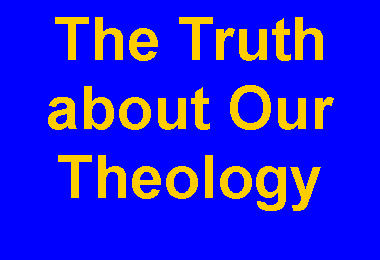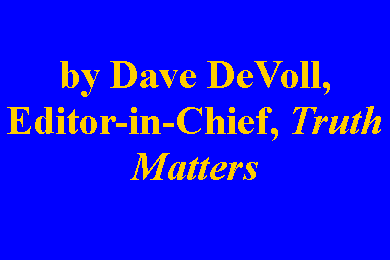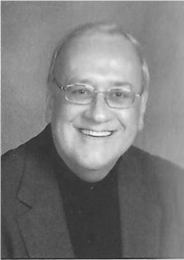

|
The first writer among us to attempt an objective historical analysis of our first 7 decades wrote, “Actually, as the historian of theology can show, every doctrine save one [emphasis his] which D.S. Warner taught had been taught in large groups of Christians at one time or another throughout Christian history.”(1) Dr. Brown noted on page 86 of the same work that the one doctrine Warner taught that had not been taught for centuries was the “identity, or at least the possible identity, between the visible and invisible church. In other words, our theology is not new. It is simply a special blend of those doctrines held in common with historic Christianity. We did not spring forth as something completely new in the land; we had historic precedent and historic roots that tied us to the various branches of historic Christianity.
There have been some common misunderstandings concerning what we believe. Some have concluded that since Warner “came out” of the Winebrennerian Churches of God (whose founder came from a Reformed, Calvinist background), that he, too, was Reformed. Others have concluded that since he was Wesleyan Arminian in his soteriology, he must have been Methodist. Others, noting have concluded that he must have been greatly influenced in his approach to the Apocalypse by such teachers as Uriah Smith of the Seventh Day Adventist Church. Others, noting the prominence of his “come out message” have deduced that he was simply a product of the American frontier where individualism was valued almost above everything else. These all represent superficial readings of those theological emphases that have shaped us as a Reformation Movement.
One might say that you will find traces of all of these elements in our theology. That is to be expected — we believed, and still do, that “brighter day are sweetly dawning, O the glory looms in sight! For the cloudy day is waning, And the evening shall be light. O what golden glory streaming! “Purer light is coming fast; Now in Christ we’ve found a freedom which eternally shall last.” (2) This was Warner’s approach: he studied a doctrine as if he heard it, and he examined it in the light of the Bible, and if it coincided with Scriptural principals as he understood them, he accepted it. The Reformed church taught the Trinity of the Godhead and the Sovereignty of God. So does the church of God. The Lutheran church taught that we are justified by faith alone without works. So does the church of God. The Baptist churches and the various “believers churches” taught baptism only of those capable of exercising saving faith in Jesus Christ. So does the church of God. The Arminians taught man’s will is free to accept or to reject the offer of salvation. So does the church of God. The Methodists taught one may be saved from all sin, original as well committed, and baptized with the Holy Spirit subsequent to regeneration. So does the church of God. The great Protestant Reformers adopted the “church-historical” hermeneutic in understanding the Book of Revelation. So does the church of God. The Pentecostal movement taught that all the gifts of the Spirit are for the church as much today as in apostolic times. So does the church of God. The list continues, for we are not unique in what we teach and practice in any area “save one,” as C. E. Brown noted.
We believe that a visible Christian unity can be achieved, and that it must be achieved if Christians are to accomplish the task Christ entrusted to our care in the Great Commission. That unity is an organic, visible unity such as primitive Christians enjoyed. It is not a forced unity of combining denominations. We practice it (sometimes imperfectly, we must admit!) when we fellowship with believers who do not come from our background, but we do this without fellowshipping denominations as such.
This Special Issue of Truth Matters attempts to show how what we believe about key issues is based on the Bible, and that the truth of the Bible on those issues really does matter!
(1) C.E. Brown, When the Trumpet Sounded (Anderson, In: Warner Press, 1951 84-85 (2) Warner, D. S., “Brighter Days are Sweetly Dawning,” Evening Light Songs (Guthrie: Ok: Faith Pub. House 1987) 1
|
